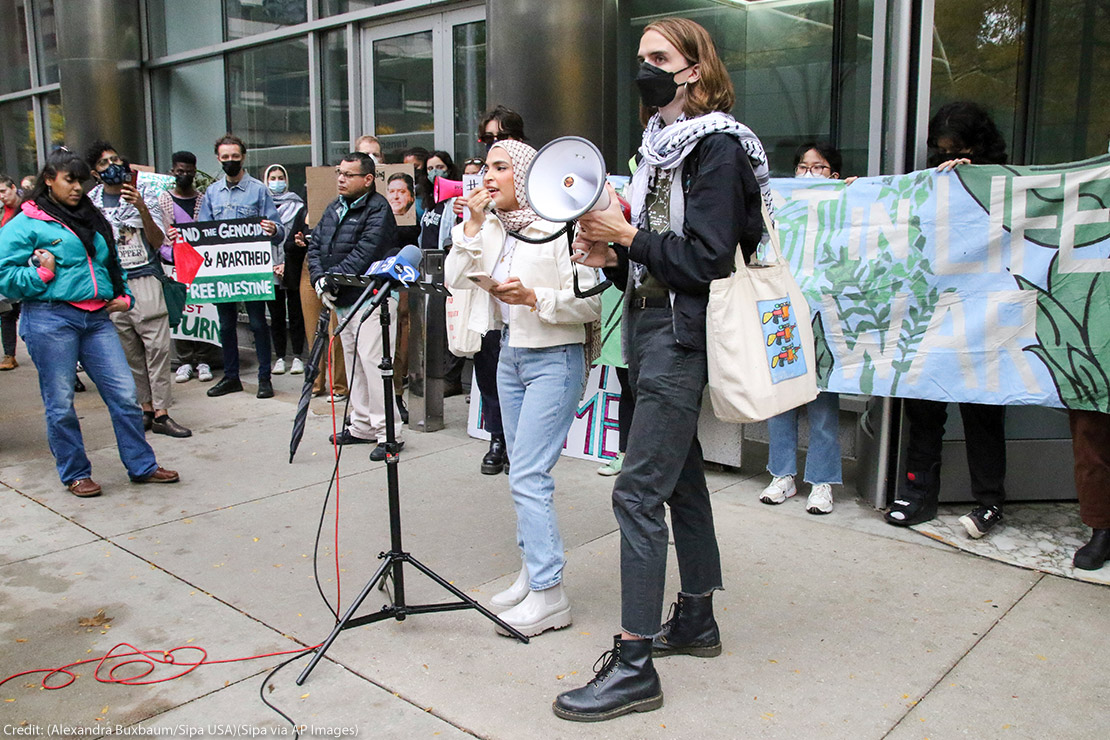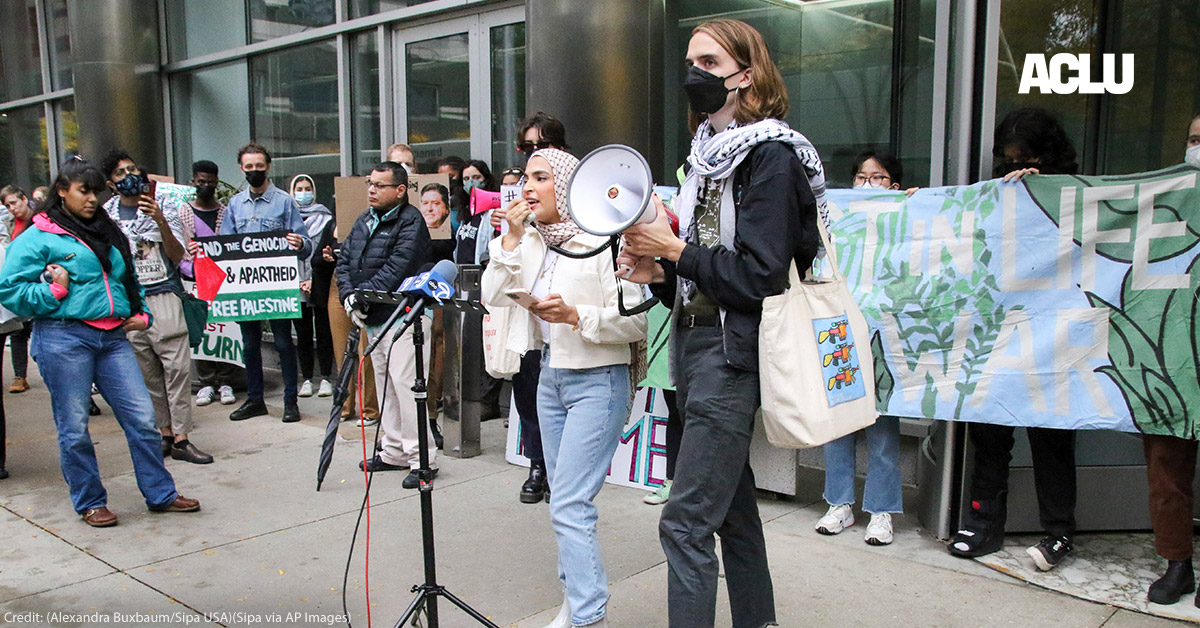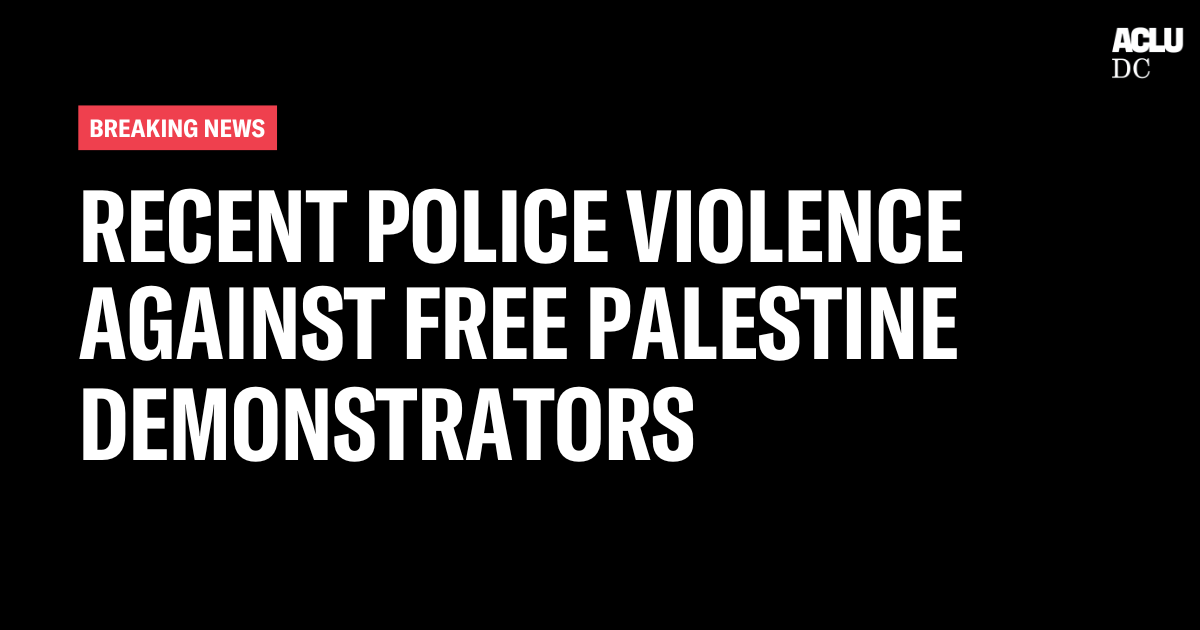The devastating conflict in Israel and Palestine has roiled campuses here at home. College students across the country are exercising their constitutional right to free speech by organizing, protesting, posting, and debating, sometimes resulting in speech that is intemperate, hateful, and abhorrent. We’re also seeing a rise in antisemitic and anti-Arab and Muslim discrimination, with documented threats against Jewish, Palestinian, Muslim, and Middle Eastern and South Asian origin students and faculty alike. These colliding dynamics have left colleges and universities contending with how to manage increased threats, genuine fears, and anguished tensions on their campuses while trying to keep students and faculty safe. We take the weight and complexity of these challenges seriously, and understand that balancing public safety and public debate can feel insurmountable.
But it is precisely in times of heightened crisis and fear that university leaders must remain steadfast in their commitment to free speech, open debate, and peaceful dissent on campus. These principles are the bedrock of academic freedom at all universities. Moreover, the First Amendment requires public universities to protect the right of students and student groups to debate and demonstrate on campus.
In recent weeks, we’ve seen a surge in efforts to punish and silence students for their speech. The Anti-Defamation League and The Louis D. Brandeis Center for Human Rights Under Law issued an open letter last week calling on university leaders to investigate pro-Palestinian student groups, alleging their speech constitutes “material support for terrorism,” punishable under federal and state law, despite no evidence to support such claims. That is why the ACLU sent its own open letter to the administrative leaders of each state’s public college system, reaching over 650 colleges and universities, expressing our strong opposition to any efforts to stifle free speech and association on college campuses. The letter unequivocally urges universities to reject calls to investigate, disband, or penalize pro-Palestinian student groups for exercising their free speech rights.
The consequences for students are not hypothetical. In late October, Florida State University System Chancellor Ray Rodrigues and Gov. Ron DeSantis took action to deactivate the Students for Justice in Palestine (SJP) chapters at public universities in Florida, based on nothing more than the speech of the national SJP organization.
Blanket calls to investigate every chapter of a pro-Palestinian student group for “material support to terrorists” — without even an attempt to cite evidence — are unwarranted and dangerous. They harken back to America’s mistakes during the McCarthy era, and in the months and years after 9/11. The ACLU has decades of experience fighting abusive and discriminatory “material support” investigations and prosecutions that infringe on or violate constitutional rights. We know from history just how damaging these types of sweeping unsubstantiated allegations can be.
In the letter, we make clear that “material support” does not include independent political advocacy, regardless of its content. The ADL cites no evidence that SJP published statements at the direction of or in coordination with Hamas. Without that connection, their advocacy is fully protected by the First Amendment, and is not “material support” for terrorism. Essential principles of academic freedom stand firmly against any attempts to punish these students for their protected speech and associations.
And, local chapters of student groups cannot be punished for their association with national organizations. As the letter states, such “investigations chill speech, foster an atmosphere of mutual suspicion, and betray the spirit of free inquiry.”
In Healy v. James, the Supreme Court affirmed that the First Amendment protects the right of student groups to associate and speak out on matters of public concern, free from censorship by public university officials. And in Holder v. Humanitarian Law Project, the court held that the federal statute prohibiting material support to terrorist groups does not criminalize independent advocacy, but only “advocacy performed in coordination with, or at the direction of, a foreign terrorist organization.”
These are difficult times, and we urge colleges across the country to hold fast to our nation’s best traditions and reject ill-advised proposals to restrict constitutionally protected speech. While one group is at the center of such affronts today, other students, groups and speech could face similar attacks tomorrow. Restricting speech may seem like an attractive option for college administrators to quell campus tensions. But efforts to censor speech often prove counterproductive, and undermine the very mission of the university. We strongly caution universities against conflating the suppression of speech with the façade of safety.
Date
Thursday, November 2, 2023 - 5:00pmFeatured image



